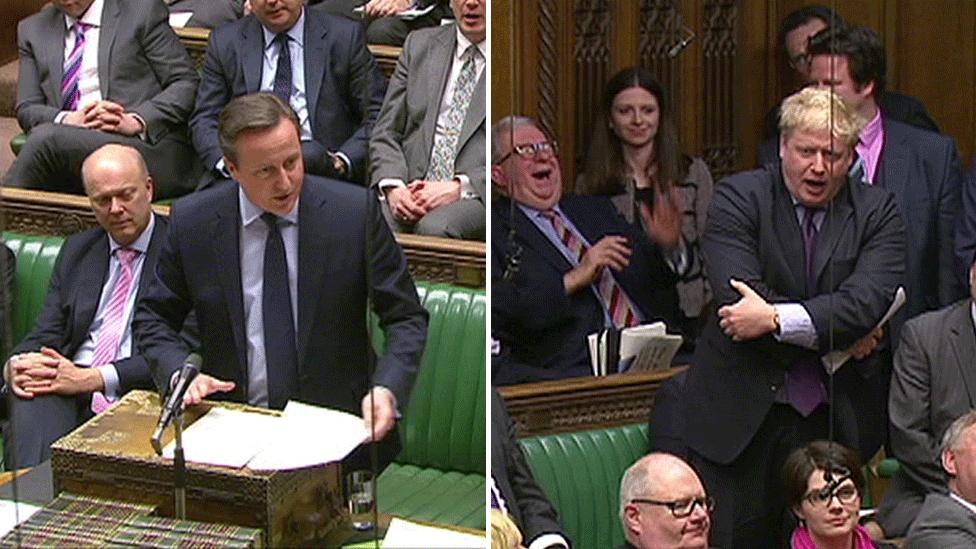EU referendum: How will divided government work?
- Published
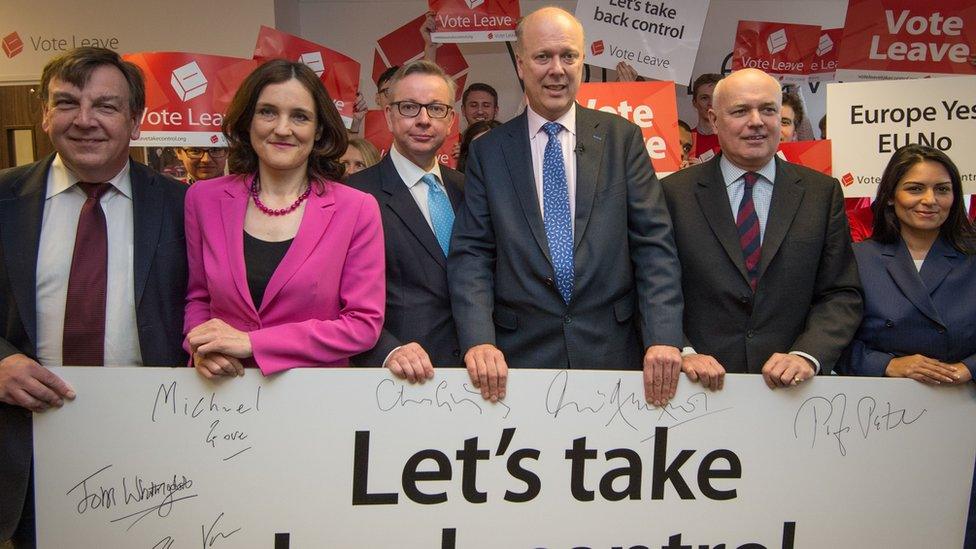
Ministers have been told they can campaign against the government in the EU referendum
Abraham Lincoln said that "a house divided against itself cannot stand". So how can the government stand when it is so utterly divided over Britain's future in the European Union?
The short answer is that it has simply decided to suspend the usual rules demanding unity and loyalty.
Cabinet ministers have been given permission to ignore collective responsibility which requires them to support government policy.
That means that the five full members of the cabinet who are refusing to support the government's position of backing the Remain campaign can stay in their jobs.
But, in a letter , externalpublished last month, David Cameron set out some pretty tight constraints on what those ministers can do.
1) Collective responsibility has been suspended only for the EU referendum. The prime minister says in his letter: "All other EU or EU-related business, including negotiations in or with all EU institutions and other member states, and debates and votes in Parliament here on EU business, will continue to be subject to the normal rules of collective responsibility and party discipline."
The letter also makes clear that these rules still apply to "policy discussions within government", which means the cabinet.
What is unclear is what happens when the cabinet meets to discuss the government's campaign to remain in the EU. Do pro-Leave ministers stay quiet? Do they recuse themselves? I spoke to two of these ministers this morning and they did not know what would happen.
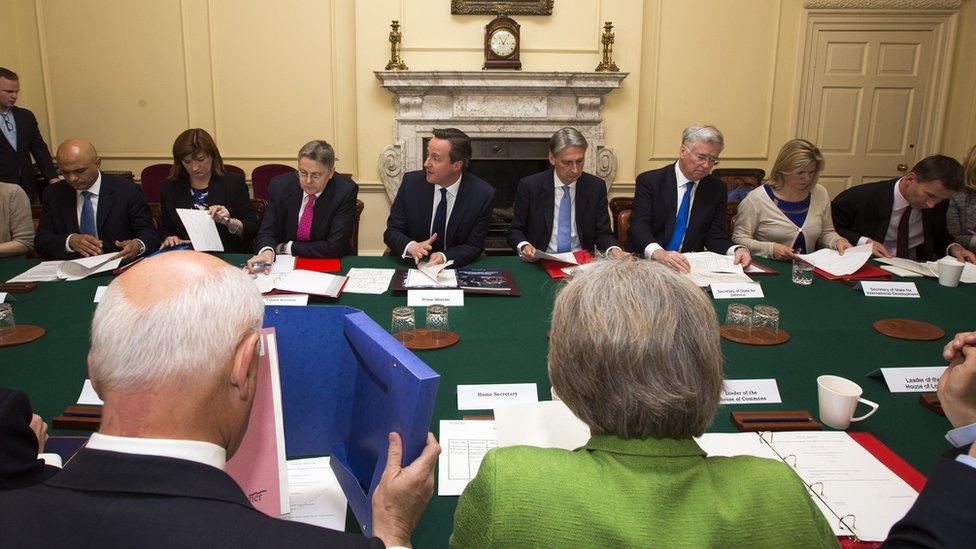
David Cameron set out rules governing how ministers can campaign on the EU
This also raises an interesting issue for the Work and Pensions Secretary, Iain Duncan Smith. He wants to leave the EU. But as the welfare secretary, he will have to start work soon to introduce the benefit curbs for EU migrants that the prime minister agreed last weekend.
The agreement - signed by all 28 heads of government - says that they will "proceed with work on these legislative proposals as a matter of priority and do all within their power to ensure their rapid adoption".
So Mr Duncan Smith has to implement a deal that he has blithely dismissed and will campaign against in coming days. The solution may be simply for DWP officials to begin work on the deal with minimal involvement of their secretary of state. Which sets an interesting precedent for ministerial accountability.
2) Ministers backing Leave will also have to bite their lips in the House of Commons. The prime minister's letter says ministers will not be expected to contradict their position on the EU while they are speaking for the government. But he also says: "In Parliament, the rules state that ministers speak from the front bench, and when they do so, they support government policy."
In other words, ministers cannot occasionally pop onto the backbenches to slag off their government and then nip back before the whips have noticed.
3) The five pro-Leave ministers will not be able to rely on their civil servants quite as much as they are used to. The letter says that "it will be the duty of the civil service to support (the government's position) in the normal way" and adds: "It will not be appropriate or permissible for the civil service or individual civil servants to support ministers who oppose the government's official position by providing briefings and speech material on this matter."
That means ministers will to have Google stuff all by themselves.
4) And if those pro-Leave ministers are feeling a little beleaguered at having to type their own speeches, they can get only a little help from their special advisers.
Mr Cameron's letter says that ministers can "draw on personal help and advice from their special advisers". Which sounds nice. Only those special advisers cannot "draw on official or departmental resources". They must do it "in their own time".
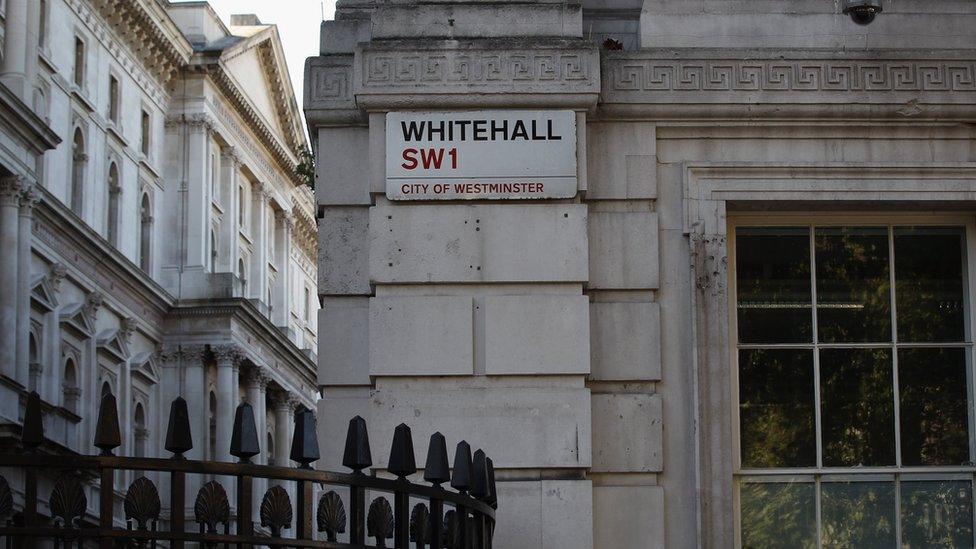
The civil service is required to support the government's position
Oh, and they have to inform the cabinet secretary's office before they do any of this. I know of one cabinet minister backing Leave who has chosen to get round all this by bringing in an old friend to act as an unofficial special adviser for the duration.
Other special advisers have been less certain of the rules and have been asking Downing Street what they should be doing. One told me: "We are all rather feeling our way on this."
In truth, Whitehall is not too worried about how the cabinet will operate in the run-up to June 23. This is, after all, a civil service that has had to deal with a coalition government for the last five years and that had a cabinet that was nothing if not divided.
But government is going to be a little edgy in coming months. The rules of engagement that the prime minister has set out are limited in their scope and do not cover all scenarios.
Much will depend on the flexibility and goodwill of ministers involved. And as this referendum campaign heats up, those are two commodities that could be in short supply.
- Published11 January 2016
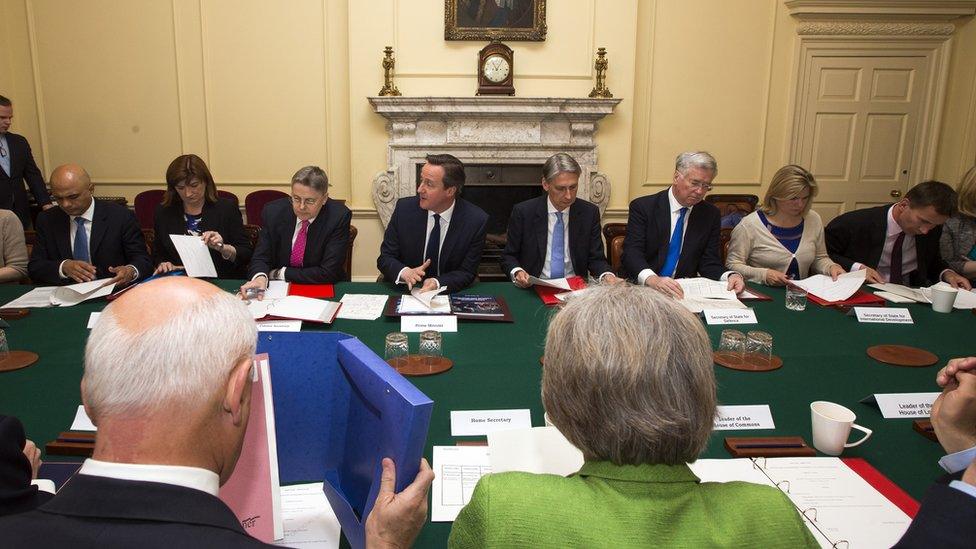
- Published22 February 2016
